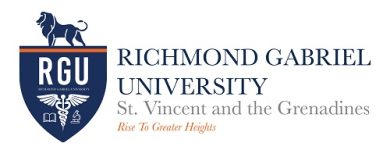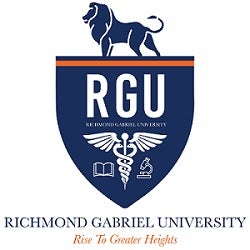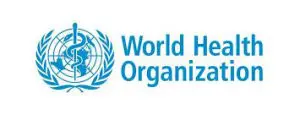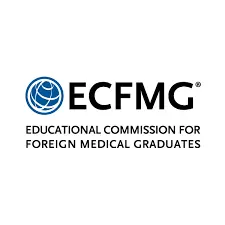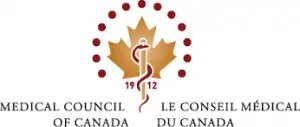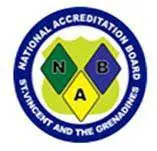Academic Curriculum
Breakdown of M.D. Degree Programs
MD DEGREE PROGRAM BREAKDOWN
5 YEAR MD DEGREE PROGRAM STARTS HERE
The Premedical program sets a strong foundation in the sciences, and this allow students to be prepared for the Medical degree program. Student must obtain at least 90 credits to meet the minimum entry requirement into the Medical Degree program.
COURSE BREAKDOWN
SEMESTER 1
- English I
- Calculus Math I
- Biology I + Labs
- Gen. Chem. + Labs
SEMESTER 2
- English II
- Biostatics Math 2
- Biology II + Labs
- Gen. Chem. II + Labs
SEMESTER 3
- Physics I + Labs
- Organic Chem. I + Labs
- Psychology
- Scholar Literary
- Research
SEMESTER 4
- Physics II + Labs
- Organic Chem. II + Labs
- Intro to Nutrition
- Sociology
Program Curriculum
The Premedical program is offered as part of the 5-year MD curriculum to allow qualified applicants who do not have a bachelor’s degree to satisfy the minimum requirements for entry into the Doctor of Medicine degree program. Students must complete all the following courses and satisfy the minimum 90 credits or pre-requisite courses in the general sciences, social sciences and humanities division.
Semester | Department | Course Code | Course Name | Credits | Total |
GS-1 | Gen. Sciences | ENG 1001 | English I | 4 |
|
MTH 1001 | Calculus Math 1 | 4 |
| ||
BIO 1001 | Biology I + Labs | 7 |
| ||
CHM 1001 | Gen. Chemistry + Labs | 7 | 22 | ||
GS-2 | MTH 1002 | English II | 4 |
| |
CHM 1002 | Biostatistics Math 2 | 4 |
| ||
BIO 1002 | Biology II + Labs | 7 |
| ||
ENG 1002 | Gen Chemistry II + Labs | 7 | 22 | ||
GS-3 | PHY 1001 | Physics I + Labs | 7 |
| |
OCHM 1001 | Organic Chemistry I + Labs | 7 |
| ||
PSY 1014 | Psychology | 4 |
| ||
ENG 1003 | Scholar Literacy | 3 |
| ||
RES 1001 | Research | 3 | 24 | ||
GS-4 | PHY 1002 | Physics II + Labs | 7 |
| |
OCHM 1002 | Organic Chemistry II + Labs | 7 |
| ||
NUT 1001 | Intro to Nutrition | 3 |
| ||
SOC 1001 | Sociology | 5 | 22 | ||
Total Program Credits | 90 | ||||
RICHMOND GARIEL UNIVERSITY
COLLEGE OF ARTS AND SCIENCES
PREMEDICAL SYLLABUS COURSE DESCRIPTION
General Biology I || BIO 1001 || 7 Credits
The course will provide freshman students with experience from which they can develop the ability to appreciate simple biological topics pertinent to the understanding of more in-depth biological concepts and topics necessary in the understanding of general Biology pertaining to Taxonomy, Ecosystems, Cell Division, Photosynthesis, and Respiration.
General Biology II || BIO 1002 || 7 Credits
This course builds on the students’ understanding of the fundamentals of biologic changes and introduces the basic concepts of genetics. Students can develop and familiarize themselves with biological systems and apply relevant concepts in the explanation of various problems encountered in everyday life, for example Human Diseases, Inheritance, Evolutionary Theories, etc.
General Chemistry I ||CHM 1001 || 7 Credits
General Chemistry I is designed to provide a survey of inorganic and physical chemistry and an introduction to organic chemistry. Topics studied in this course include atomic structure, covalent and ionic bonding, chemical reactions, chemical calculations, acid, base and solution chemistry, radiochemistry and chemistry of hydrocarbons. Quantitative reasoning skills are developed and used where appropriate to enhance the understanding of these concepts. The medical and environmental applications of topics covered in lecture are highlighted.
General Chemistry II ||CHM 1001 || 7 Credits
General Chemistry II is designed to overview important concepts of physical chemistry. It relates the physical properties of substances and their chemical composition and transformations. Topics studied in this course include gas laws, colligative properties, chemical equilibrium, chemical kinetics, and thermodynamics. The content aids in the understanding of how, how fast, and why chemical reactions and processes will occur. Quantitative reasoning skills are developed and used where appropriate to enhance comprehension. The basic concepts of chemistry are applied and their applications in current events and health sciences are evaluated.
Organic Chemistry I || OCHEM 1001 ||7 Credits
This course is a comprehensive survey of aliphatic and aromatic organic chemistry, with emphasis on medical sciences. Students are exposed to topics such as phenols and aryl halides, aldehydes, and ketones. Amines, carboxylic acids, and their derivatives. Organic chemistry lays the foundation for biochemistry.
Organic Chemistry II ||OCHEM 1002 || 7 Credits
This course focuses on the metabolic pathway of the biological macromolecules, such as glycogenesis, glycogenolysis, lactose synthesis, breakdown products of metabolic pathways, structure and function of vitamins. Organic chemistry provides a solid foundation for biochemistry.
English I ||ENG 1001 || 4 Credits
This course builds on the students’ understanding of the fundamentals of biologic changes and introduces the basic concepts of genetics. Students can develop and familiarize themselves with biological systems and apply relevant concepts in the explanation of various problems encountered in everyday life, for example Human Diseases, Inheritance, Evolutionary Theories, etc.
English II ||ENG 1002 || 4 Credits
There will be two main modes of academic writing examined and explored by students during this course: expository and argumentative writing. Students will also be exposed to the fundamentals of research writing and will be asked to write an extensive research paper using the appropriate citation style (MLA). Students will be introduced to the roles that culture and perception play in speech and will be asked to analyse the impact and influence that both roles play on verbal and non-verbal forms of communication.
Introduction to Psychology ||PSY 1014 || 4 Credits
This course provides a foundation for a physician to deal with very difficult patients and their families. Areas covered include Psychiatry, abnormal behavior, mental health diseases and diagnostic skills. Students will be introduced to the stages of life, Freud’s topographic and structural theory of the mind, psychoanalytic theory, learning theories, substance abuse, sleep cycles and disturbances and genetics and biochemistry of behavior.
Introduction to Nutrition ||NUT 1001 || 3 Credits
The course focuses on major nutrients and their dietary sources, functions, and contribution to human health. Students will learn about energy containing nutrients, vitamins and minerals and its contribution to weight management and healthy lifestyle. The course also looks at applying the principles of diet modifications to the treatment of disease.
Calculus ||MTH 1001 || 4 Credits
This course provides students with the knowledge to apply Mathematics strategies in solving everyday problems and applying techniques in calculus to real life situations. It allows students to develop a good Mathematical background that is essential to grasp concepts which are quantitative in nature.
Biostatistics ||MTH 1002 || 4 Credits
The objective of this course is to teach the principles of biostatistical analysis and epidemiology. It focuses on quantitative data analysis and the application of biostatistics in medical research. Terms such as incidence, prevalence, reliability, validity, sensitivity, specificity, and different research study designs are facts premed and medical students will have to know for the rest of their life. This course is an extension from Mathematics 101 and allows students to focus on concepts which allow them to organize and make sense of all the information that they will encounter as they continue their studies.
Physics I ||PHY 1001 || 7 Credits
Physics I cover basic principles and methods of all branches of classical physics at an introductory level. It also covers areas such as Newtonian mechanics, gravitation, oscillations, elasticity, fluids, and heat.
Physics II ||PHY 1002 || 7 Credits
Physics II is a continuation of Physics I. It covers areas of basic knowledge of biophysics. It includes the basic principles of waves, optics, electricity, magnetism, electromagnetic induction, and radioactivity as applied in Medicine. Students will be introduced to basic applications of radiographic, CT-Scan, PET scan, Ultrasound and MRI imaging technology.
Research || RES 1001 || 3 Credits
The purpose of the Research Course is to gradually introduce the concept of research to premedical students. It involves the definition of terms and other aspects as regards to understanding research.
This present curriculum has been developed with the goal of achieving an integrated and flexible curriculum that goes beyond examinations. It promotes the skill and art of research in medicine, critical thinking, and lifetime learning. To impart good research skills to the students the program uses didactics lectures, clinical case discussion and practical sessions.
Scholar Literacy || ENG 1003 || 3 Credits
The course of scholarly literacy designed to foster a knowledge base in the fundamentals of research, critical to a career in any of area of medicine. The course will include didactics on biostatistics, epidemiology, evidence-based medicine, research methods and other critically appraised topics. Across all activities, students will be exposed to overarching concepts and critical language for implementing and interpreting research. Students will demonstrate integration of knowledge through the completion of authentic individual and group assignments. The course will focus on synthesizing and translating evidence that will inform clinical and research practices.
Sociology || SOC 1001 || 5 Credits
This course introduces the main idea, themes, and issues of Sociology. It lays a theoretical base for the consideration of the nature of the Caribbean society and culture and encourages the adoption of a scientific approach to issues of social and economic analysis.
BASIC SCIENCES COMPONENT
4 YEAR MD DEGREE PROGRAM STARTS HERE
Basic Sciences phase sets a strong foundation for students before they transition into the Clerkship phase of their program.
COURSE BREAKDOWN
SEMESTER 1
- Gross Anatomy
- Histology and Cell Biology
- Embryology
- Epidemiology
- Intro to Clinical Medicine I
SEMESTER 2
- Biochemistry
- Physiology
- Introduction to Clinical Medicine II
- Behavioral Sciences
- Genetics
SEMESTER 3
- Pathology I
- Neuroscience
- Microbiology & Immunology
- Intro to Clinical Medicine III
SEMESTER 4
- Pathology II
- Pharmacology
- Nutrition
- Intro to Clinical Medicine IV
SEMESTER 5
- Intro to Clinical Medicine V
- Pre Clinical Review
Basic Medical Science Curriculum
The Four-Year Doctor of Medicine Degree program encompasses the Basic Medical Sciences and Clinical Sciences phase over a 4 year period. Students complete the Basic Medical Sciences phase on university campus in St. Vincent and the Grenadines.
Semester | Department | Course Code | Course Name | Credits | Total |
MD-1 | MANT | ANAT 1201 | Gross Anatomy | 8 | |
MANT | HTG 1204 | Histology & Cell Biology | 9 | ||
MANT | EMB 1202 | Embryology | 4 | ||
MBEH | EPI 3006 | Epidemiology | 2 | ||
MICM | ICM 1101 | Intro to Clinical Medicine I | 3 | 26 | |
MD-2 | MBIO | BCHM 2001 | Biochemistry | 7 | |
MPAT | PHY 2204 | Physiology | 9 | ||
MICM | ICM 2102 | Intro to Clinical Medicine II | 3 | ||
MBEH | PSY 3014 | Behavioral Sciences | 6 | ||
MBIO | MGEN 3002 | Genetics | 2 | 27 | |
MD-3 | MPAT | PTH 3301 | Pathology I | 10 | |
MANT | NEU 3206 | Neuroscience | 6 | ||
MBIO | MIC 2104 | Microbiology & Immunology | 8 | ||
MICM | ICM 3103 | Intro to Clinical Medicine III | 3 | 27 | |
MD-4 | MPAT | PTH 4401 | Pathology II | 12 | |
MPHM | PHM 4404 | Pharmacology | 10 | ||
MBIO | NUT 4403 | Nutrition | 2 | ||
MICM | ICM 4414 | Intro to Clinical Medicine IV | 3 | 29 | |
MD-5 | MICM | ICM 5106 | Intro to Clinical Medicine V | 7 | |
REV 6000 | Pre-Clinical Review | 10 | 17 | ||
Total Credits | 126 | ||||
Course Descriptions
The Clinical Phase of the program provides valuable “hands-on” training at ACGME and CAAM-HP approved teaching hospitals in the USA and Caribbean respectively. Students are required to complete 48 weeks of core clinical clerkship and 32 weeks of elective clerkships. Student must complete their core rotations before moving on to elective rotations.
RICHMOND GABRIEL UNIVESITY
COLLEGE OF MEDICINE
COURSE DESCRIPTION
Behavioral Science ||PSY 3014 || 6 Credits
Behavior Science impacts in every year of medical study and practice and on all disciplines for the complete physician. While addressing the compassionate and humanistic aspects of medicine, Behavioral Sciences provides the prospective physician with the basic understanding of human behavior in the context of health and sickness. It also provides an opportunity for the student of medicine to understand principles of medical ethics of his/her own conduct in various medical settings. Behavioral Science also provides the essential skills in interview techniques and history taking with the aim of preparing the student for patient care.
Biochemistry || CHM 2001 || 7 Credits
Biochemical understanding of proteins, carbohydrate, lipids and nucleic acids is fueling the revolution in medicine, demonstrating how the basic principles of biochemical structure govern molecular regulation in normal human health or malfunction in disease. The structure and content of the course can be broken down into three blocks, encompassing pathways for carbohydrates, lipids, proteins and nucleotides, how the pathways are regulated by signaling and individual molecules, and how intermediary metabolism relates these pathways together in a regulated manner (or disease state).
Gross Anatomy || ANAT 1201 || 8 Credits
Human gross anatomy is fundamental to medical education, providing students with their most basic foundation for medical practice. This anatomical foundation is used throughout the career of practitioners and in virtually every realm of medicine, from research to practice to medical education. The emphasis of this course is on normal human anatomy, although points of clinical relevance are discussed and clinically – oriented lectures are provided. An emphasis on normal anatomy is necessary because diseases encountered in medical practice generally represent departures from the fundamental pattern learned in this course. In addition, knowledge about normal anatomy is shared across the curriculum in other courses.
Histology and Cell Biology || HTG 1204 || 9 Credits
This is the study of the microscopic and ultramicroscopic structure of mammalian tissues and organs, i.e., microscopic anatomy. Special emphasis is placed on the relation of structure to function in relation to disease & clinical scenarios. This course gives the student a thorough and detailed overview of the various normal human tissues and organs.
The course highlights normal human histology and the functional significance of micro-anatomical structures. The lectures & laboratory portions of the course are completely integrated. The lectures precede the laboratory examination of corresponding material during each session.
Microbiology and Immunology || MIC 2104 || 8 Credits
This course will introduce students to the microbial species that cause human disease. We will cover bacteria, fungi, viruses, and protozoa, and discuss current topics including antibiotic resistance, public health threats, and global health. Upon completion of this course students will be able to describe: the biological differences between bacteria, viruses, fungi, and protozoa; how the biology of these organisms leads to human disease; and how humans try to prevent or treat these diseases. Students will be able to explain the tests used by microbiologists to identify and characterize organisms. and also to analyze a scientific article and present a critique to their peers.
Neuroscience || NEU 3206 || 6 Credits
An interdisciplinary introduction to the fundamental aspects of the nervous system structure and function. The course introduces the fundamental aspects of nervous system development, including an overview of the basics of integrative neural function, including sensory, motor, and limbic systems, and computational neuroscience. It provides a broad overview of the structure and function of the central nervous system, with a focus on issues relevant to clinical neurology.
Pathology I || PTH 3101A || 10 Credits
Pathology is the study of disease. Physicians who specialize in Pathology assist attending physicians in the care of their patients by interpreting biopsies of various organs and mass lesions, examining cytology samples obtained by smears or fine needle aspiration.
Pathologists also generally supervise clinical laboratories (hematology, chemistry, microbiology, blood bank, serology, immunology etc.) to maintain quality control and accuracy. Lastly, pathologists perform autopsies to establish the cause of death in cases, which have defied clinical discovery. Forensic pathology is the subspecialty devoted to determining the cause of death in cases, which fall under the jurisdiction of a coroner or medical examiner.
The study of pathology is the foundation for understanding the biology of disease, necessary for competent patient care and the health and safety of the general population.
Pathology II || PTH 4401A || 12 Credits
Pathology is a major course that completes the basic science curriculum and is the bridge between basic science and clinical medicine. It is the field that studies the cause and diagnosis of disease. The pathologist is a physician skilled in the diagnosis of disease by microscopic and laboratory analysis. The science of pathology involves the exploration of the mechanisms of disease and how events at the level of the cell affect the patient as a whole. Emphasis is placed on understanding the basic principles and mechanisms of tissue and body reactions to injury and the morphological expression of these reactions.
Pharmacology ||PHM 4405 || 10 Credits
The goal of the Basic Medical Pharmacology course is to assure that our students obtain a thorough comprehension of the basic pharmacological principles necessary for developing the most rational, effective, and safest therapeutic regimen for their patients.
Medical Pharmacology provides an understanding of the basic principles of pharmacokinetics and pharmacodynamics. It focuses on the mechanism of action of medications at the molecular, cellular, organ, system, and whole-body level.
Physiology || PHY 2204 || 9 Credits
Students are introduced to the basics of normal human physiological functions and processes in the human body with a direct correlation to human medicine. Emphasis is place on cell physiology and in depth, coverage of physiological processes in the various organ systems in the body.
Pre-Clinical Review || REV 6000 || 10 Credits
Comprehensive Basic Science Review Course is a blend of all the Basic Science subjects learned by the students from MD 1 to MD4. This is where all Basic Science subjects are reviewed, giving the student the wherewithal to consolidate the learning objectives in line with Cognitive Domain of Bloom’s Taxonomy, namely Knowledge, Comprehension, Application, Analysis, Synthesis and Evaluation of all Basic Science subjects. This course also provides a common organization of content across all United States Medical Licensing Examinations (USMLE). Consonant with the integrated nature of this course, each Organ System mentioned below will incorporate all or some of the elements of the Basic Science subjects as required, namely Anatomy, Histology, Embryology, Physiology, Biochemistry, Genetics, Pathology, Microbiology, Immunology and Pharmacology.
Embryology|| EMB 1202 || 4 Credits
A study of major developmental stages and processes with an emphasis on vertebrate embryos. Topics include gametogenesis and early development, formation of primary germ layers, and concepts of differentiation, tissue induction, and morphogenesis.
Epidemiology || EPI 3006 || 2 Credits
The material consists of an introduction to epidemiology, surveillance for the detection of outbreaks, and outbreak investigation and control for infectious agents, etc. You will be introduced to case studies drawn from actual diseases that illustrate these essential epidemiological methods and will gain an understanding of how to solve case studies.
Medical Ethics || ETH 3115 || 2 Credits
The Medical Profession has long subscribed to a body of ethical parameters developed to guide medical decision making for the well-being and benefit of the patient. It is imperative that any health care professional have knowledge of medical law, ethics, and bioethics so that clients are treated with understanding, sensitivity, and compassion. Clinical ethics is a practical discipline that provides a structured approach for identifying, analyzing, and resolving ethical issues in clinical medicine. The willingness of physician and patient to endorse moral values, such as mutual respect, honesty, trustworthiness, compassion, and a commitment to pursue shared goals, usually ensures a sound ethical relationship between patient and physician.
Medical Genetics || MGEN 3002 || 2 Credits
This course will begin with an introduction to the biochemistry of nucleic acids including DNA replication and repair, transcription, and protein synthesis. This will lay the foundation for understanding how mutations result in disease processes. Emphasis will be placed on the molecular nature of specific genetic disorders. Classic Mendelian inheritance as well as newly described complex forms of inheritance will be presented. Problem solving will include clinical as well as molecular data. This course will provide a framework, which allows students to integrate the basic concepts of this fast growing and highly technical field.
Nutrition || NUT 4403 || 2 Credits
This course is a component of the Clinical Medicine Lecture series designed to provide an overview of nutrition and healthy diets according to current nutrition standards and models to prevent and manage diseases. Health promotion, disease prevention, and cost containment will be reinforced and demonstrated as essential to delivery of health care.
Introduction to Clinical Medicine I || ICM 1101 || 3 Credit
The foundations of clinical medicine –I focuses on patient interviewing, medical history taking and key aspects of patient- doctor relationship. It is the first of a five-part curriculum designed to introduce the student to the basic elements of clinical practice. Topics in this semester include communication skills, ethical treatment of patients and professionalism. In addition, students working in small groups with individual physicians will learn the fundamentals of obtaining a complete medical history from the patient’s presenting complaint, history of present illness, social history, family history, and review of systems.
Introduction Clinical Medicine II || ICM 2102 || 3 Credits
Foundation of Clinical Medicine-II course is designed to teach medical students to interview, examine, and understand patients and their problems. Application of this information is then used to form a differential diagnosis and plan for the treatment of the patient. The course consists primarily of lectures and laboratory sessions. The lectures cover the clinical pathology that is commonly encountered in the hospital and in everyday practice. The material is presented in a practical and comprehensive manner. Patient interaction labs accompany lecture topics and as far as possible the examination of a particular system is taught, and demonstration of specific clinical skill and techniques are carried out by the instructor in an interactive session just after the lecture on that particular body system. The course is organized into various systems such as Cardiovascular Examination, Respiratory Examination & Abdominal Examination.
Introduction to Clinical Medicine III || ICM 3103 || 3 Credits
Introduction of Clinical Medicine-III course is designed to teach medical students to interview, examine, and understand patients and their problems. Application of this information is then used to form a differential diagnosis and plan for the treatment of the patient. Patient interaction labs accompany lecture topics and as far as possible the examination of a particular system is taught, and demonstration of specific clinical skill and techniques are carried out by the instructor in an interactive session just after the lecture on that body system.
Introduction to Clinical Medicine IV || ICM 4414 || 3 Credits
This course is designed to help prepare the student for the clinical phase of medical school education. Lectures and demonstrations will review and reinforce the communication, professionalism, interviewing, screening physical and neurological examination skills learned in previous semester courses. Students will practice these skills in small groups in Clinical Skills Laboratory with individual physicians. At the completion of this course students will be able to communicate their conclusions, and the knowledge and rationale underpinning these conclusions, to specialist and non-specialist audiences with specific and special clinical skills in physical examination to identify pathological to normal findings. Students will also have the learning skills in clinical reasoning during their encounter with a patient involving all systems.
Introduction to Clinical Medicine V || ICM 5106 || 7 Credits
This course is designed to help the student integrate the knowledge learned in the Basic Sciences into the cognitive processes required for successful transition into the clinical sciences and to gain experience applying this knowledge to the practical approach of patient care. Students study the clinical presentation and management of major systemic disease processes including pertinent laboratory tests and radiologic studies of diagnostic importance. Advanced skills in interviewing techniques, history taking, and physical examination during problem-focused patient encounters will be covered. Emphasis is placed on the development of a student’s case presentation skills. The course faculty also team-teach small group clinical tutorials related to lecture and lab contents.
Clinical Science Curriculum
CORE CLINICAL CLERKSHIP
Students who have successfully completed all of their basic medical sciences course work and who have passed the Comprehensive NBME CBSE with a score of 200 can commence their core clinical clerkship rotations. Students will be guided by the Dean of Clinical Affairs and Clinical Coordinator in making the arrangements for their clinical clerkship placement.
Students spend the first 48 weeks completing the core clinical specialties: Internal Medicine, Family Medicine, Surgery, Psychiatry, Pediatrics and Obstetrics and Gynecology. The core rotations lay the foundation for the elective rotations done in the remaining 32 weeks. Further details regarding the clinical clerkship curriculum can be found in the Student Handbook.
ELECTIVE ROTATIONS
Fourth year medical students must successfully complete a minimum of 32 weeks of elective rotations in their field of choice. The student may decide on the elective choices on their own or after speaking with their academic advisor or Dean of Clinical Affairs. Students may also apply for extramural elective rotations outside of the university clinical sites, during their elective years. Students can reach out to the Dean of Student Affairs or Dean of Clinical Affairs to learn more about Extramural Elective Rotations.
CORE CLINICAL ROTATIONS EVALUATIONS
Each student must be evaluated by the Clinical Faculty Preceptor at the midway point and end of the scheduled rotation. Each student is required to complete an evaluation form assessing the clinical preceptor and the clinical rotation. The rotation is not completed until all evaluation forms are completed and received. If a student’s performance is not up to par, that student will be notified by the clinical preceptor and the necessary measures, such as counseling, will be taken to improve the student’s performance. If a student fails a core clinical rotation s/he cannot move forward to the next academic year without remediation of the failed rotation.
CLINICAL ROTATIONS SCHEDULED MEETINGS
Clinical Students are required to attend a monthly meeting with the Dean of Clinical Affairs and also the Clinical Chair. These meetings can be conducted at the hospital site where the rotation takes place or via teleconferencing media.
Program Details
Clinical Science Curriculum
The Clinical Phase of the program provides valuable “hands-on” training at ACGME and CAAM-HP approved teaching hospitals in the USA and Jamaica respectively. Students are required to complete 48 weeks of core clinical clerkship and 32 weeks of elective clerkships. Student must complete their core rotations before moving on to elective rotations.
Year | Department | Course Code | Course Name | Credits | Total |
Year 3 | Clinical | IMED 5000 | Internal Medicine | 12 |
|
SURC 5000 | General Surgery | 12 |
| ||
FAMC 5000 | Family Medicine | 6 |
| ||
OBGC 5000 | Obstetrics & Gynecology | 6 |
| ||
PEDC 5000 | Pediatrics | 6 |
| ||
PSYC 5000 | Psychiatry | 6 | 48 | ||
Year 4 | Clinical |
| Elective Rotations | 32 | 32 |
| Total Credits | 80 | |||
BSc. Public Health Curriculum
Students accepted into the Bachelor of Science in Public Health program must complete the required courses to qualify for the BSPH degree. The public health curriculum takes on a multidisciplinary approach to provide students with broad range of knowledge that serves as a strong foundation for real world application in the work environment as well as pursuing graduate and professional level training.
